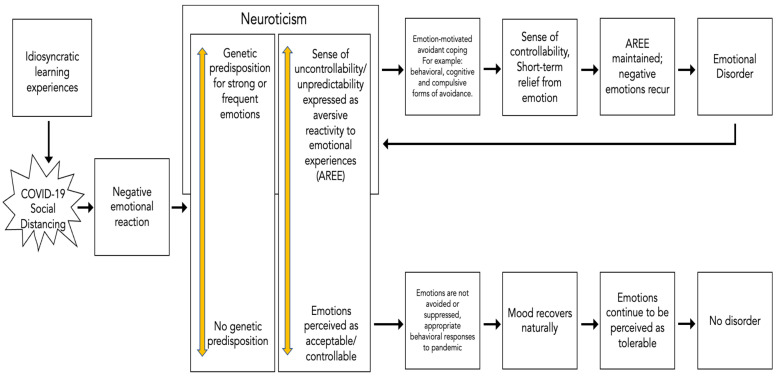Figure 1.
Model of the mechanisms explaining the development of emotional disorders versus adaptive emotional responses (adapted from [16]). COVID-19 social distancing triggers emotional reactions universally. The top pathway indicates that people who have a more neurotic temperament, and who may have developed a sensitivity to social-distancing-related triggers due to idiosyncratic learning experiences, engage in avoidant coping (e.g., rumination, worry, experiential avoidance), leading to the development and maintenance of emotional disorders. The bottom pathway describes an adaptive response to social distancing associated with low neuroticism and non-avoidant coping, leading to no disorder.

